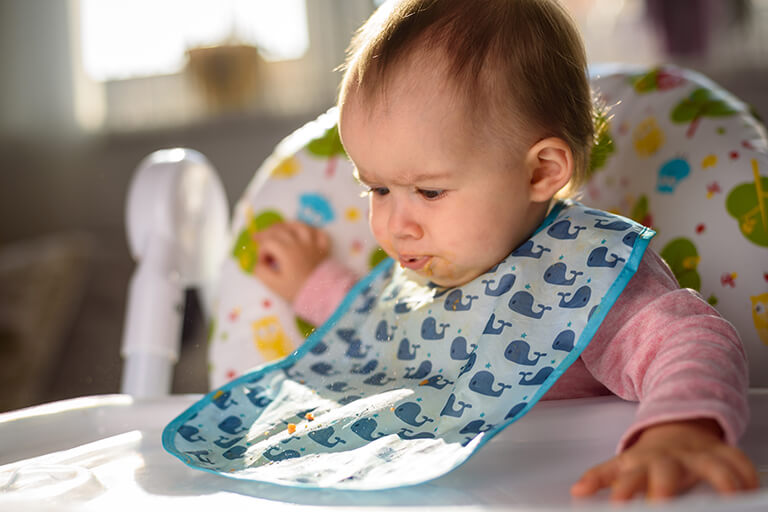New parents may want to check on their newborn out of happiness or worry. Worrying about your baby’s health and behavior is a completely normal reaction on your part.
One common concern Dr. Olfa has found among new parents is their confusion regarding understanding the difference between vomiting and spitting up. Both are easy to deal with if you take preventive measures, otherwise you will need to consult your pediatrician. So, let’s talk about what you need to know regarding the difference between vomiting and spitting up in infants.
What You Need to Know About Spitting Up
Spitting is the most natural and recurrent phenomenon in infants during the initial months of their life. This usually happens after they eat their food and the reaction is considered completely normal.
What Causes Spitting Up?
Your baby might spit up because they;
- Have a small and developing digestive system which takes time to consume enough food. It makes the milk flow back out of the mouth frequently.
- Intake more milk than they can handle, which is when some of it flows back in the form of spit.
- Are fed consistently during short intervals, making it difficult for their little stomach to digest.
How Should You Manage It?
Since the phenomenon of regurgitation is completely natural in infants, look for signs that the baby is about to spit up to possibly deal with it.
- The baby will have a small portion of spit collected at the corner of their mouth.
- It usually occurs right after feeding.
- Usually, when infants relax their fists, it means they are full right after feeding. There are chances the baby might spit up afterward.
Spitting up is a common occurrence and parents need not worry about it. Since the signs before spitting up are shared from a pediatrician’s point of view, it is best to learn how to avoid spitting. Here are a few tips to manage it:
- Plan meal time: Try to feed your baby at regular intervals and make sure he digests his food.
- Burp: Burping helps the infant release trapped air right after feeding.
- Upright position: ensure to hold your baby for a little while after feeding.
Although spitting up is hardly a matter of concern, if your baby does not gain weight or refuses to take regular feeding, It’s highly recommended you visit your baby’s pediatrician.
What You Need to Know About Vomiting
Forceful release of content from the stomach is what is termed as vomiting. Vomiting in infants is a matter that requires immediate attention.
What Causes Vomiting?
Is vomiting a matter of concern or is it normal? Well, it depends on your baby’s health condition. Certain factors influence vomiting like;
- Excess feeding can burden your baby’s stomach and cause vomiting.
- Changing weather conditions can instigate bacterial and viral infections, giving rise to innate issues like vomiting.
- One of the causes includes any food allergy, such as lactose intolerance.
How Should You Manage It?
As a parent to an infant, it can be stressful to witness your baby’s first ill health, however, with Dr. Olfa’s tips and suggestions you can go through this phase of life easily. Initially, you need to characterize the signs of vomiting such as;
- Weariness or fever
- Discomfort due to reasons like stomachache, indigestion, etc.
- Dehydrated body
A pediatrician can share a fair deal of precautionary measures that you can take to overcome your baby’s vomiting. Some of the points you should keep in mind include;
- Don’t feed excessively and quickly.
- Make sure your baby is taking enough fluid to stay hydrated.
- Change your diet if you are breast-feeding.
Vomiting occurs due to very minute reasons as a baby’s body is prone to changing conditions. However, excess vomiting can lead to serious health concerns therefore consult your local pediatrician immediately.




